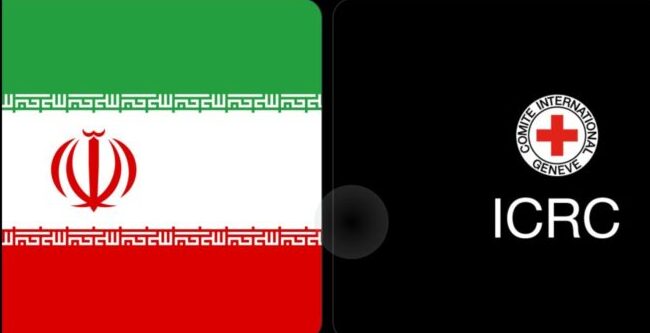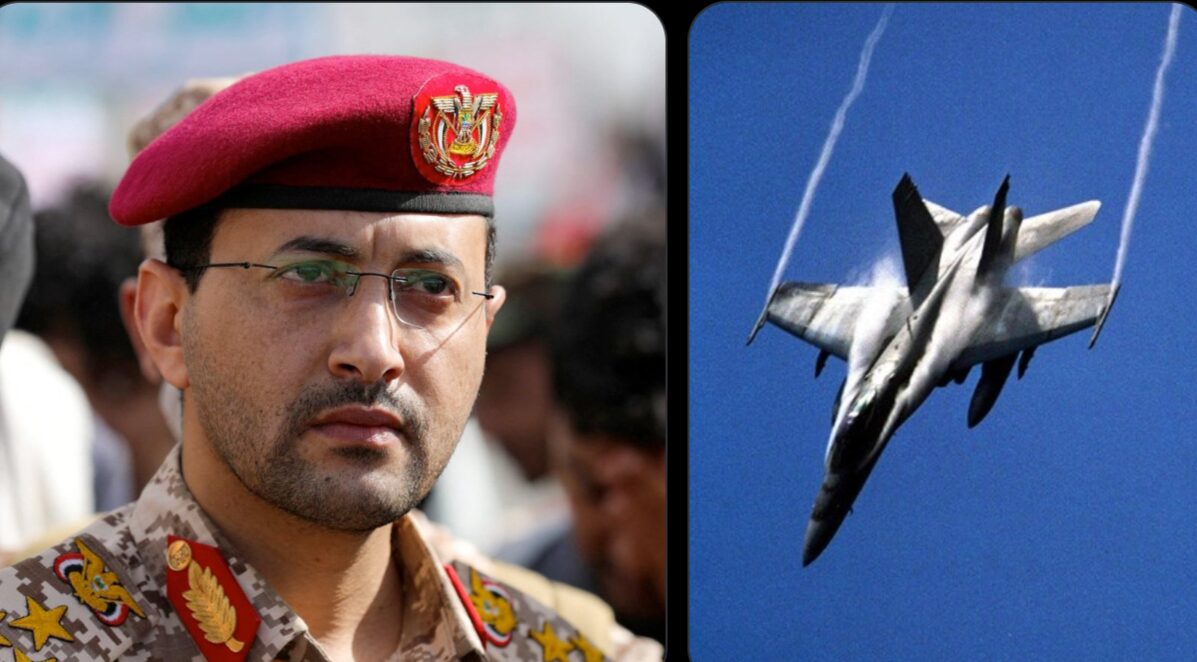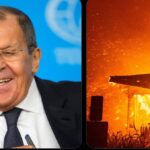Iran’s Red Crescent Society Offers Aid for Los Angeles Fire Relief: A Gesture of Solidarity Amid Crisis
In a surprising and heartwarming display of international solidarity, Iran’s Red Crescent Society (IRCS) has extended a helping hand to Los Angeles, California, offering to provide rescue and relief aid in the aftermath of the devastating wildfires that have ravaged the region. The fires, which have caused widespread destruction, displacement, and loss of life, have prompted a global response, with various organizations and nations stepping forward to assist those affected.
“I assure you, on behalf of the Iranian Red Crescent Society (IRCS), that you’re not alone in these difficult moments,” said the President of IRCS, offering a message of comfort and support to the people of Los Angeles. This gesture, while humanitarian in nature, carries a deeper meaning within the context of global relations, politics, and the shared challenges of natural disasters.
A Unifying Moment in the Face of Disaster
Natural disasters, such as the wildfires that have plagued California in recent years, have the unique ability to transcend borders, uniting people and nations in times of crisis. The devastating wildfires that have burned through vast stretches of land in Los Angeles have caused immense damage to homes, businesses, and the environment. In this moment of need, the IRCS’s offer to provide rescue aid is an important reminder that compassion and aid can come from unexpected places.
Iran’s offer of assistance is particularly notable given the often tense and complex geopolitical relationship between the United States and Iran. The two countries have had strained diplomatic relations for decades, marked by sanctions, political disagreements, and regional conflicts. Despite these tensions, the IRCS’s pledge to support the fire relief efforts in Los Angeles underscores a crucial point: in times of human suffering, political differences can often be set aside in favor of compassion and assistance.
The Role of Humanitarian Organizations
The Red Crescent Society, which is part of the larger International Red Cross and Red Crescent Movement, plays a critical role in providing humanitarian aid during times of disaster. Established in 1963, the IRCS is dedicated to providing medical care, emergency response, and relief services both within Iran and internationally. Similar to the Red Cross, the Red Crescent’s mission is rooted in neutrality, impartiality, and a commitment to human dignity.
The Iranian Red Crescent has previously offered its assistance during international crises, including earthquakes, floods, and other natural disasters around the world. In this instance, their offer of aid to Los Angeles highlights the organization’s capacity for global cooperation, even in politically charged environments. Humanitarian organizations such as the IRCS are often able to bridge divides and work across borders to provide life-saving aid, no matter the political context.
The U.S. Response to the Offer
The United States, which is home to a number of relief organizations, including the American Red Cross, has been at the forefront of responding to the Los Angeles wildfires. The scale of the disaster has led to widespread calls for both local and international assistance to help manage the aftermath. The U.S. government, through agencies like FEMA (Federal Emergency Management Agency), has been actively involved in coordinating relief efforts, while local organizations have been working tirelessly to provide immediate relief to those affected.
The offer from Iran’s Red Crescent Society is significant, but the official response from the U.S. government has yet to be fully articulated. Given the political climate between the two countries, it remains to be seen how the U.S. will receive this offer of aid. While the U.S. has historically accepted international aid in times of crisis, political considerations might affect the willingness of the government to formally accept assistance from an Iranian organization.
That said, many humanitarian organizations are often able to operate independently of government politics, and it’s possible that local agencies or international organizations already involved in the fire relief efforts could work with the IRCS to coordinate support. The core focus of any disaster relief operation is providing aid to those in need, regardless of political or national affiliations.
The Global Significance of Solidarity
The offer from the IRCS also serves as a reminder of the power of solidarity in the face of global challenges. Natural disasters do not discriminate by nationality, and people everywhere are united by their vulnerability to these events. The fires in California have caused widespread destruction, and while the region has its own resources to manage such disasters, the offer of international help highlights that, no matter the circumstances, compassion transcends borders.
Iran’s Red Crescent Society’s pledge of support also reinforces the broader role of international humanitarian aid networks. Whether it’s the American Red Cross, the International Federation of Red Cross and Red Crescent Societies (IFRC), or regional organizations like the IRCS, the cooperative efforts of humanitarian organizations ensure that people in need receive aid, no matter where they live or which country they call home.
The Potential Impact on U.S.-Iran Relations
Although this specific gesture of aid is rooted in humanitarian concern, it also offers an opportunity to reflect on the larger geopolitical context. The longstanding animosity between the U.S. and Iran, often characterized by sanctions, diplomatic stalemates, and tensions over issues like nuclear proliferation, makes any overture of assistance from Iran a significant development.
While this offer may not directly change the broader political dynamics between the two nations, it serves as a reminder that even in the most challenging of international relationships, there are moments when cooperation and goodwill can shine through. In the past, international aid has sometimes been a bridge to easing political tensions, as countries realize that working together in the face of common challenges can be more beneficial than remaining in a state of discord.
Moreover, this gesture by Iran could resonate with the Iranian people, who may see it as an opportunity to contribute to a meaningful cause beyond their borders, helping those in need. It could also have an impact on global perceptions of Iran, showing a side of the country that is focused on humanitarian efforts, rather than solely on political conflict.
Conclusion: A Moment of Humanity Amid Crisis
The offer from Iran’s Red Crescent Society to assist in the relief efforts for the Los Angeles wildfires serves as an important reminder that, in times of crisis, the need for humanitarian aid can override political differences. While the political implications of this offer are certainly noteworthy, the most immediate and impactful response will be the assistance provided to those suffering from the devastating fires in California.
In the face of natural disasters, solidarity knows no boundaries. The generosity of international organizations, regardless of their origin, is what helps rebuild communities, restore hope, and provide relief to those in dire need. As the people of Los Angeles continue to recover from this tragic event, the support from around the world—whether it comes from Iran or other nations—will be instrumental in helping them rebuild their lives.

















Post Comment